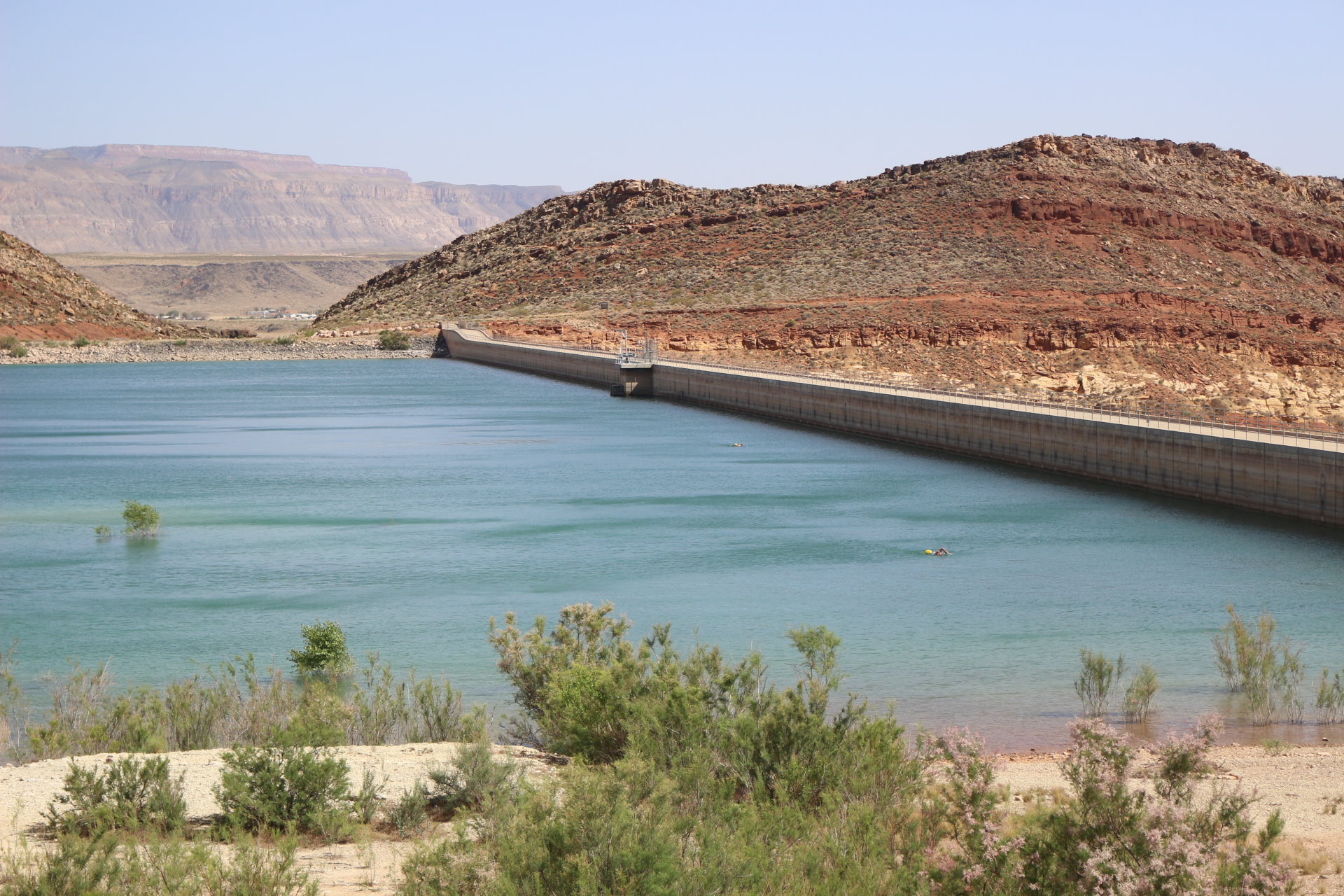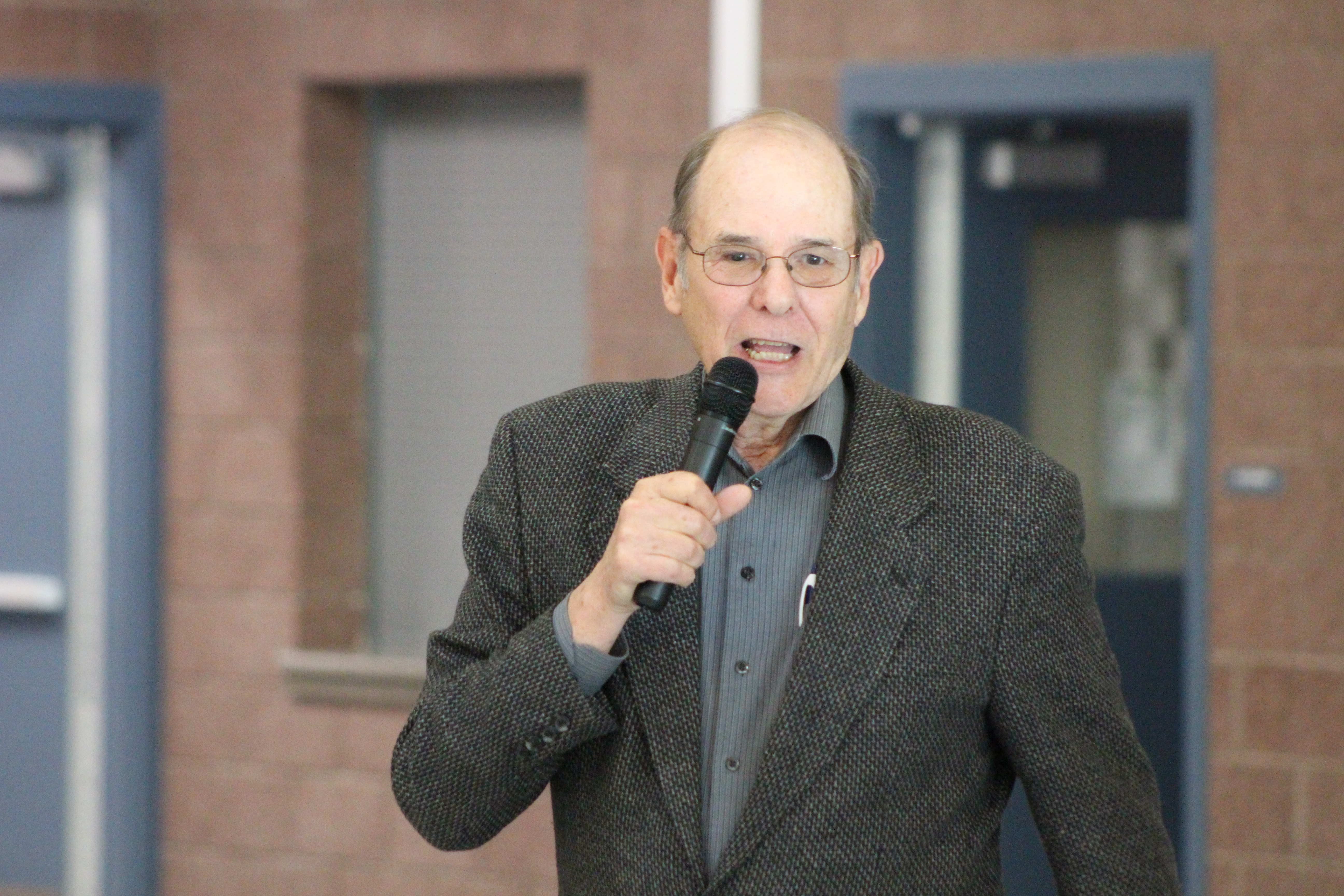
ST. GEORGE — All three Washington County seats are up for grabs this election season. Vying for Commission Seat A are incumbent Republican Gil Almquist and Democrat challenger Robert Ford.
Almquist is seeking a second term to continue work begun during his first four years in office while Ford offers experience dealing with water issues and other matters.
Ballots will be sent to voters starting Oct. 18, with Nov. 1 being the last day to request a mail-in ballot if none was received otherwise.
In-person voting takes place Nov. 8.
Gil Almquist | Republican | Incumbent

Seeking a second term, incumbent Almquist will be nearing three decades in public service if reelected. Prior to his election to the commission in 2018, Almquist served on the St. George City Council for 16 years and on the city’s Planning Commission for 10 years before that. He has also been a small business owner, having run a landscaping business for several years before joining the commission. Almquist said he is running again so he can continue to serve the county he loves while also hoping to see some projects through to completion.
“There’s some unfinished business, some things I’d like to accomplish,” he said.
Why are you running for County Commission Seat A?
“I have the energy and I have the time, and this will only be my second term,” Almquist said.
The “unfinished business” Almquist said he wants to see completed during a second term is the conversion of the corner of Tabernacle Street and 200 East into a potential open space. While the original county administration building will be rented out for a while, plans are in the works to eventually tear it down. In its place could be an open space that would add to the beautification of downtown St. George, he said.
“This could be a beautiful open public space, and the downtown calls for it,” he said.
Other projects Almquist wants to see move forward are the Northern Corridor and the Warner Valley Reservoir, the latter being a topic Almquist said he has pushed for many years as a part of the county’s overall water storage and conservation plans.
“The answer has always been build reservoirs (for more water), and Warner Valley seemed to be the most logical, so I campaigned on that when I ran against Dean (Cox) and I campaigned on it four years ago for this position, so that I’d like to see that through to completion,” he said.
Issues facing the county
While water is a perpetual concern, Almquist spoke of it in relation to local jobs and the economy.

“Normally, people wouldn’t link a job to water, but we are currently having to make that connection,” he said. “I’ll tell you why: If you don’t have water, you don’t have growth. And people will say, well, towns don’t need to grow well, and actually, a town like ours, cities like ours, a county like ours needs to have some growth to continue to go forward. When you stop growth, those towns and cities end up going backwards. But water has become very critical. It was for the pioneers; it still is for us.”
A lack of available water can halt the issuance of building permits for new homes and businesses, Almquist said, as well as prove detrimental to existing industries like manufacturing. If a business requires a certain level of water to operate day-to-day and loses that ability, that business could end up relocating or shutting down, resulting in lost jobs.
Concerning growth, the commissioner said he does not support the idea of putting a moratorium on growth. Rather, he said it can be offset by the preservation of viewsheds and sacred sites that aren’t in private hands. He also said the overall design of incoming developments can go a long way in helping counteract urban sprawl.
“Design can trump density,” Almquist said, adding that some new developments in the county have created multifamily units that mitigate a sense of high density,
Government overreach from the state and federal government is another area of concern for Almquist and his constituents that he said he’s doing his best to fight against. He specifically called out “unfunded mandates” from the state level, and described these as orders from the Legislatures mandating that counties and municipalities adhere to some new procedure or take on new personnel without providing the means – namely the funds – to help accomplish those ends.
Robert Ford | Democrat | Challenger | Website

Ford lives in Rockville where he runs a small ranch, as well as a small business centered around nature photography and consulting. His work with and for the federal government and universities on matters related to agriculture and land management has taken him across America and other parts of the world. This includes the US Departments of the Interior, Agriculture and other agencies, as well as the University of Utah, University of California-Riverside, Brigham Young University and other schools. He also has been a planning commissioner for the town of Rockville. Ford currently teaches at Utah Tech University.
“I think I’m bringing some expertise,” Ford said. “I just want to offer my services to the community field so that I could be helpful.”
Why are you running for County Commission Seat A?
Though he originally planned not to run – he ran for a commission seat in 2018 – Ford said friends and family convinced him otherwise because they felt his background would benefit the county, particularly where water is concerned.
During the times he worked with and for the federal government, Ford spent time in Africa and Latin America working on drought, water and land management issues. He also has done similar work in the United Arab Emirates and now wants to apply his expertise at the county level, he said.
“I have a lot of training and expertise in dealing with drought and water both locally as well as internationally,” he said. “I think I could offer my services to help on some of those issues.”
Where Ford said he could be of particular help for the county was leading out on water issues between the county and federal government moving forward. He said these issues involve collaboration and working across institutional boundaries.
“And I have a lot of experience doing that,” he said.
Issues facing the county
Water and growth are a concern for Ford and the people he has spoken to. While water is an ever-present issue that closely ties to growth, for Ford and his neighbors, those concerns extend to agricultural use.

“I hear a lot about the role of agriculture and how agriculture and water resources are used by agriculture,” he said. “I think one of the longer-term solutions is to work with the agricultural community to help them not overuse water.”
While the bulk of the growth in the city happens within the cities and new development is proving to be more water-wise, Ford said more needs to be done, and that “there needs to be really a big discussion between the agricultural sector and the urban growth sector in this county.”
Discussions with county farmers would include the possibility of changing watering patterns, what crops they choose to plant, and other issues Ford said may not be too popular but would nonetheless aid in water conservation efforts.
Growth along the Zion Corridor is also a concern as it has gotten to the point that people who work in Springdale can’t afford to live there, which prompts the need for more attainable housing, Ford said. People who work in the area also often commute from the more urbanized part of the county, sparking a need for a reliable transit service.
There needs to be more representation on the County Commission, Ford added and said he favors seeing the commission have five members instead of three, with each commissioner representing a specific part of the county. The rural parts of the county, like the Zion Corridor, don’t have adequate representation on the County Commission, and that needs to change, he said.
Issues facing the county needn’t be handled over ideological lines, Ford said, adding that he is not running to discredit anyone and feels the commissioners are doing what they feel is best. Rather, he said he’s there to offer his knowledge and experience for the benefit of the county and its residents.
“I would like to offer my services and feel that I can maybe do a better job than some of the commissioners of the past or that are currently there, and maybe bring people together,” he said.
Check out all of St. George News’ coverage of the 2022 election by clicking here.
Copyright St. George News, SaintGeorgeUtah.com LLC, 2022, all rights reserved.